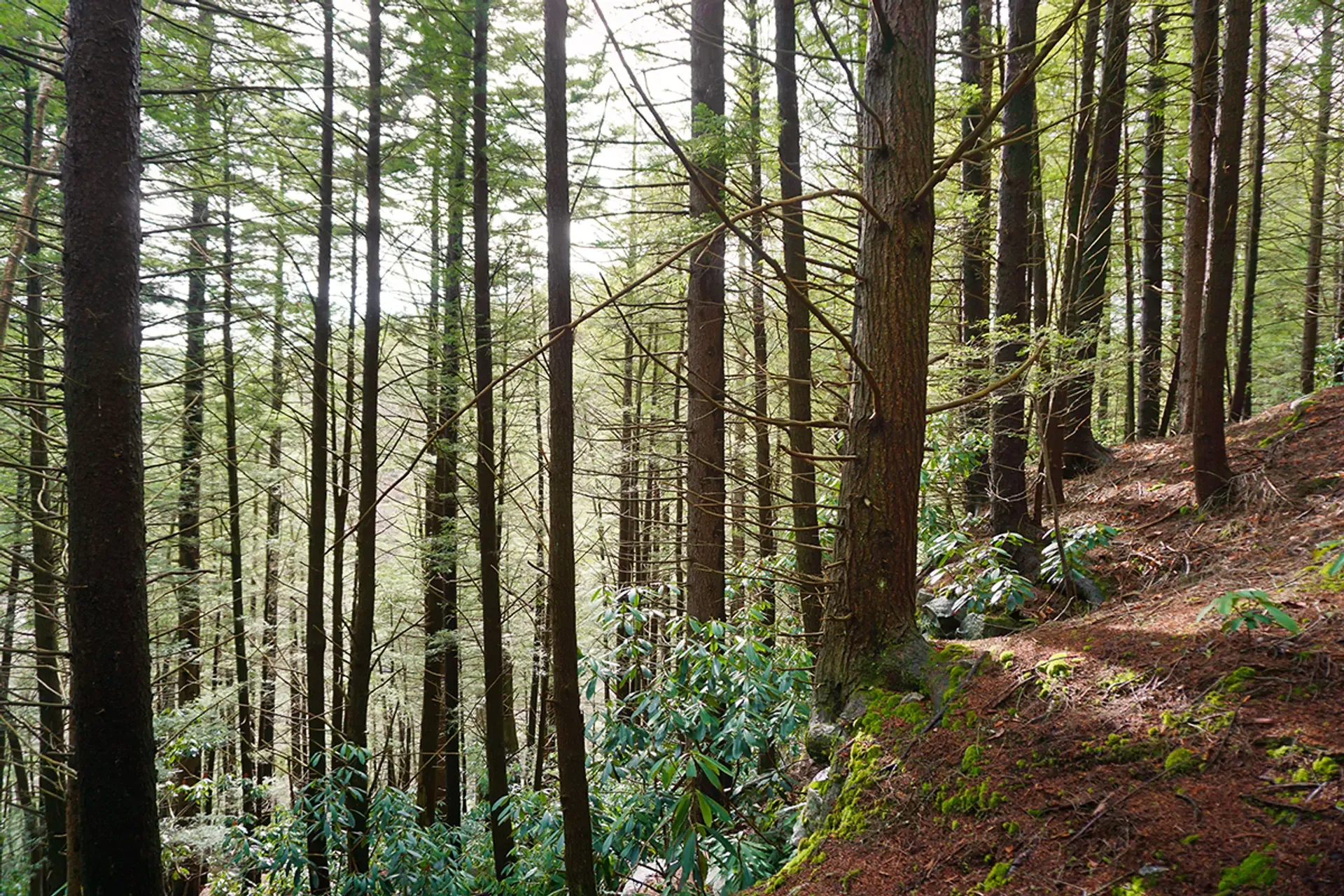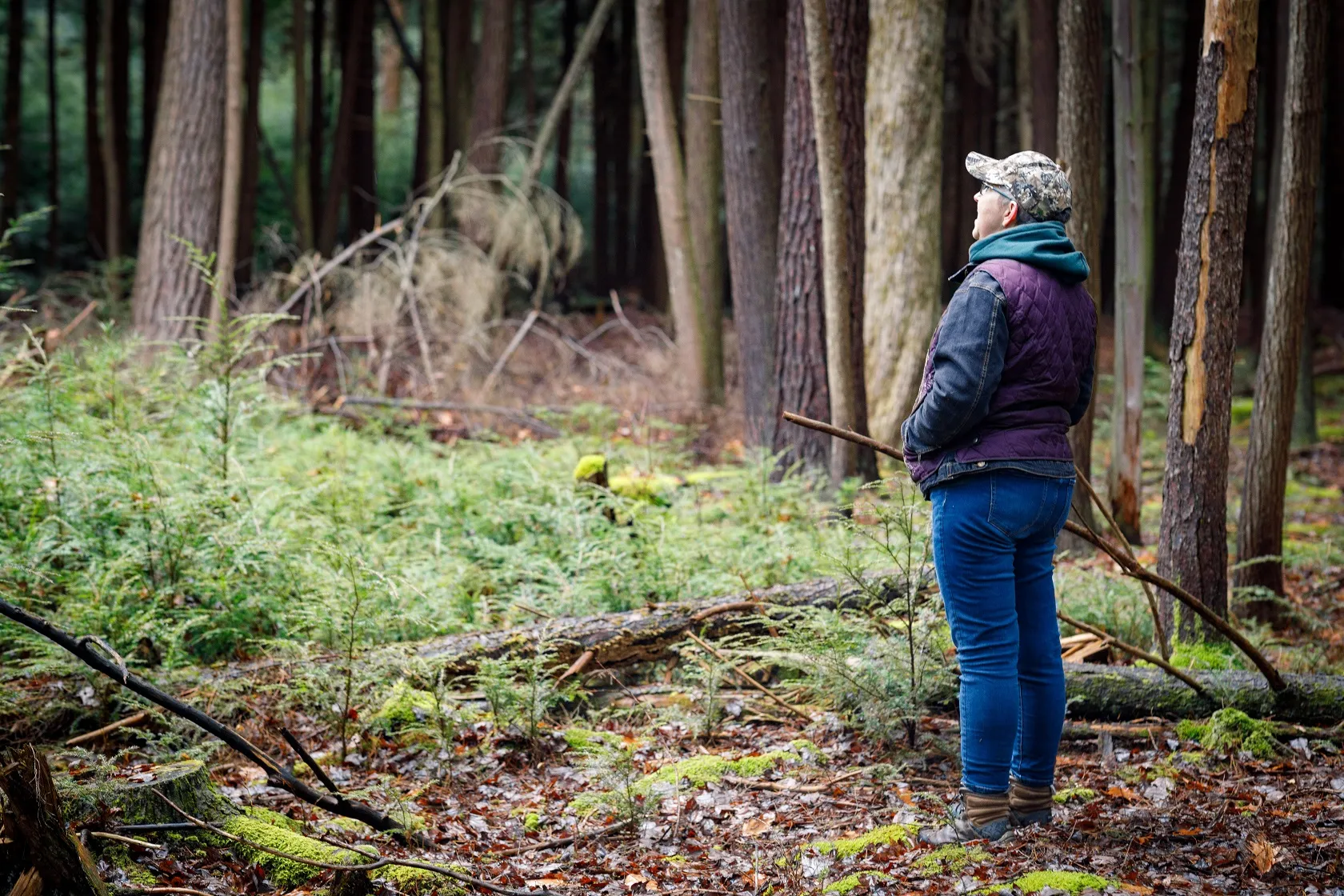Four Ways Businesses Are Leading Change in the Voluntary Carbon Market

Even just a few years ago, investing in carbon projects and purchasing carbon credits was a difficult task for companies that did not always yield clear results. Companies had to do their due diligence and individually vet through projects with all sorts of varying carbon standards, purchasing credits from programs where the measured carbon impact was opaque at best. Today, the carbon landscape is changing for the better. Today’s carbon markets demand higher transparency, accountability, and carbon integrity. Companies now can more easily distinguish between the programs making credible carbon claims and those that do not. This trend toward quality allows companies to truly lead change in the Voluntary Carbon Market when deciding who to partner with.
Choosing partners that align with your company’s climate targets and sustainability goals is key. At the American Forest Foundation, the Family Forest Carbon Program provides options for carbon buyers, donors, and investors to get involved in the development of a catalytic improved forest management project that delivers a credible carbon benefit. Here are four ways that companies are partnering with the American Forest Foundation to catalyze change in the Voluntary Carbon Market:
The Long-Term Offtake Agreement
For the company reducing its carbon footprint and seeking offsets to address their remaining emissions, the long-term offtake agreement offers great benefits to both companies and project developers alike. With the long-term offtake agreement, a company and project developer work together to lock in a set volume and price for carbon credits to be purchased and delivered over a given period of time. This provides companies a steady supply of credits annually — typically at lower cost — and makes it easier to plan for long-term sustainability goals and corporate climate targets. For project developers, long-term offtake agreements provide a steady stream of financing support that sustains projects and keeps them delivering on measurable carbon results.
Recently, the specialty outdoor retailer REI partnered with the Family Forest Carbon Program through a long-term offtake agreement. The partnership works in the interest of every party and brings REI’s more than 20 million members of its co-op closer to the family forest owners enrolled in the program. “REI focuses its work at the intersection of people and planet,” said Matt Thurston, Director of Sustainability at REI, “[the Family Forest Carbon Program] is at the forefront of forest carbon strategies, using ground-breaking approaches to its carbon accounting and programming to that will help small landowners join the fight against climate change by ensuring their forests are achieving the greatest carbon reductions possible”.
For more information, check out the American Forest Foundation’s blog on long-term offtake agreements here.
The Advanced Market Commitment
The advanced market commitment suits companies looking for a steady supply of carbon credits over time while also making a bigger impact earlier on in a project’s life cycle. Similar to the long-term offtake agreement, carbon buyers agree to contract terms and receive a stream of credits over the course of a contractual period – the only difference is that payment to project developers occurs immediately upon contracting, with greater discounts provided if paid in full.
Providing capital upfront enables project developers to quickly get projects off the ground and into existence versus long-term offtake agreements, where the capital is deployed annually as credits are generated and sold. Plus, having advanced market commitments in place can help project developers secure additional upfront capital through debt financing and green bonds by indicating proof to credit providers of the market’s strong demand for the project.
The Walt Disney Company invests in natural climate solutions and chose to invest in the Family Forest Carbon Program because of its joint benefits for both small forest owners and the climate. Via an advanced market commitment, Disney supports the American Forest Foundation in speeding up the development of new project areas for the Family Forest Carbon Program and is committed to buying carbon credits from the program once they are available through 2028.
The Philanthropic Partnership
For corporate foundations and charitable organizations, entering a philanthropic partnership with the right partner is a great way to demonstrate leadership in funding conservation impact, integrity, and innovation in programmatic approach.
As a 501c3 nonprofit, the American Forest Foundation is committed to developing practices that deliver transparency in carbon additionality while engaging underserved landowners across the country. We undergo a comprehensive practice development process that identifies which forest management practices would provide the most effective carbon storage and sequestration while creating the highest financial benefit to family forest owners. Philanthropic funding allows us to develop these innovative practices and pilot them across new geographies.
The Catalytic Corporate Investment
The catalytic corporate investment suits the corporate investor or large carbon buyer with the capital or balance sheet that can be leveraged to provide investments in new regional projects. Similar to the advanced market commitment, companies can help bring online new carbon projects through upfront funding for research and development and project piloting. Through these investments, which are higher risk, the corporate investor spearheads early stage project development and receives a preferred carbon credit return in exchange for their early stage investment.
Catalytic corporate investments are a win-win for investors, project developers, and landowners alike. Not only do they provide the capital needed to launch new carbon projects that support more landowners and sequester more carbon, catalytic corporate investments also give companies a mechanism to create new sources of high quality credits at competitive prices.
A well-functioning Voluntary Carbon Market means everyone doing their part – from project developers and local communities to global companies and institutions. And through the use of existing innovative business solutions, we can build the partnerships needed to lead change in the Voluntary Carbon Market and create more inclusive opportunities for natural climate solutions.
If you are interested in learning more about the Family Forest Carbon Program and partnering with the American Forest Foundation, connect with us at ffcp_partnerships@forestfoundation.org.
Related Articles

December 18, 2025
Improving Wildlife Habitat with the Family Forest Carbon Program
For many landowners, spotting a fox, songbird, or other wildlife on their property is one of the highlights of spending time on their land. In this post we look at some examples of management practices you may see in your FFCP forest management plan and how they help create the ideal conditions for certain wildlife species.

December 16, 2025
Family Forest Carbon Program's First Ever Credits Delivered to REI Co-op
Today, REI becomes the first buyer to receive carbon credits from the Family Forest Carbon Program (FFCP), a high-integrity forest carbon project designed for small-acreage landowners.

December 4, 2025
Forest Carbon Project Issued First Ever Credits
Conservation organizations the American Forest Foundation (AFF) and The Nature Conservancy (TNC) announced today the issuance of improved forest management (IFM) carbon credits to the Family Forest Carbon Program (FFCP) from standards setter Verra under its Verified Carbon Standard (VCS) Program. This marks the first issuance of credits produced using Verra’s VM0045 improved forest management (IFM) methodology, which was co-developed by Verra, AFF, TNC, and TerraCarbon.